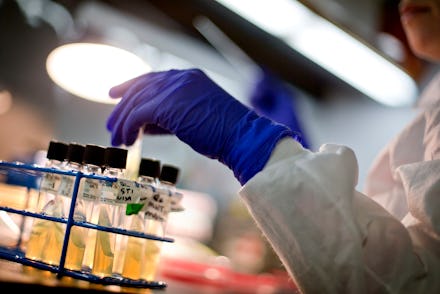Awesome 25-year-old woman may have just found a way to fight drug-resistant bacteria

A scientist could be on the verge of pioneering treatment for drug-resistant superbugs — and she's only 25 years old.
Shu Lam, a doctoral student at the University of Melbourne, is developing a way to fight superbugs without antibiotics. Utilizing star-shaped polymerized peptides called SNAPPs — structurally nanoengineered antimicrobial peptide polymers — scientists can "physically [disrupt] or [break] apart the cell wall of the bacteria," Lam said, according to the Telegraph. "This creates a lot of stress on the bacteria and causes it to start killing itself."
Traditional antibiotics basically poison bacteria, which can also damage the body's healthy cells and lead to harsh side effects. Lam's engineered SNAPPs are too large to affect the friendly cells within our bodies.
"With this polymerized peptide we are talking the difference in scale between a mouse and an elephant," Lam's supervisor, Greg Qiao, told the Sydney Morning Herald. "The large peptide molecules can't enter the [healthy] cells."
Though it's still early — Lam and her team have tested the new treatment on six strains of drug-resistant bacteria thus far, as well as on superbug-infected mice — fellow researches are already hailing the procedure as "a breakthrough that could change the face of modern medicine," according to the Telegraph.
The fight against bacteria: Bacteria have evolved since the discovery of the world's first antibiotic substance, penicillin, and the United Nations has said the immunity is turning into a "fundamental threat."
Antibiotic-resistant bacteria already kills 700,000 people a year and scientists fear that number could rise to 10 million deaths per year by 2050. Staphylococcus aureus, better known as a staph infection, is a common example of antibiotic-resistant bacteria that runs rampant throughout hospitals. But these superbugs have the potential to enter our everyday lives. A recent study from the Centers for Disease Control and Prevention found that gonorrhea, one of the most commonly spread sexually transmitted diseases, is evolving immunity to antibiotics.
Lam is hopeful her research can usher in a new era for medicine — perhaps one that doesn't rely on antibiotics.
"I wanted to be involved in some kind of research that would help solve problems," she told the Telegraph. "I really hope that the polymers we are trying to develop here could eventually be a solution."